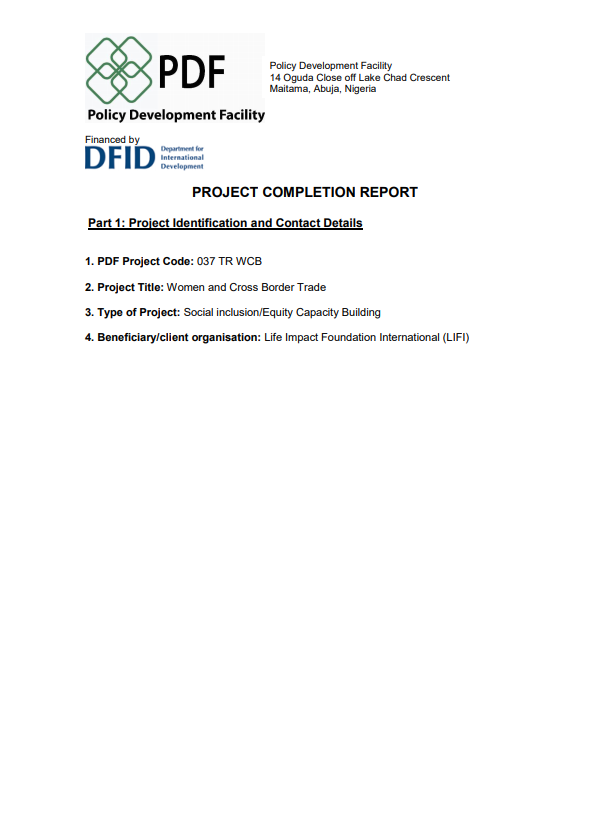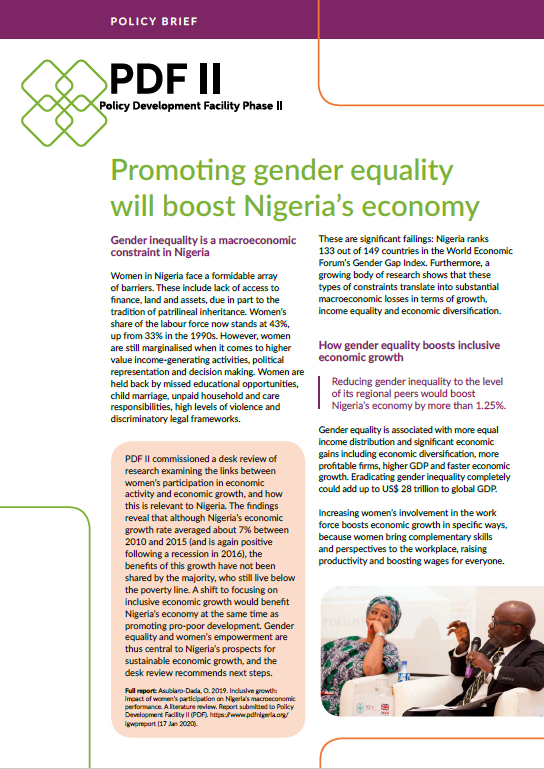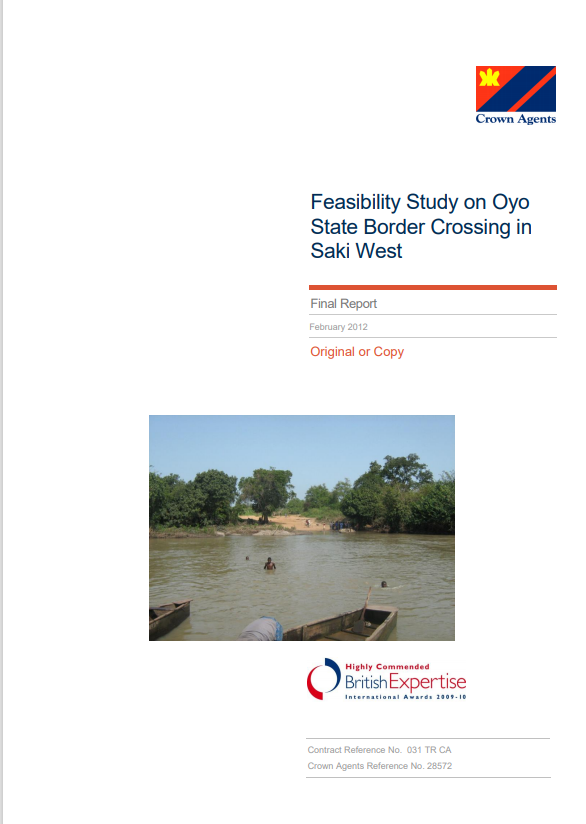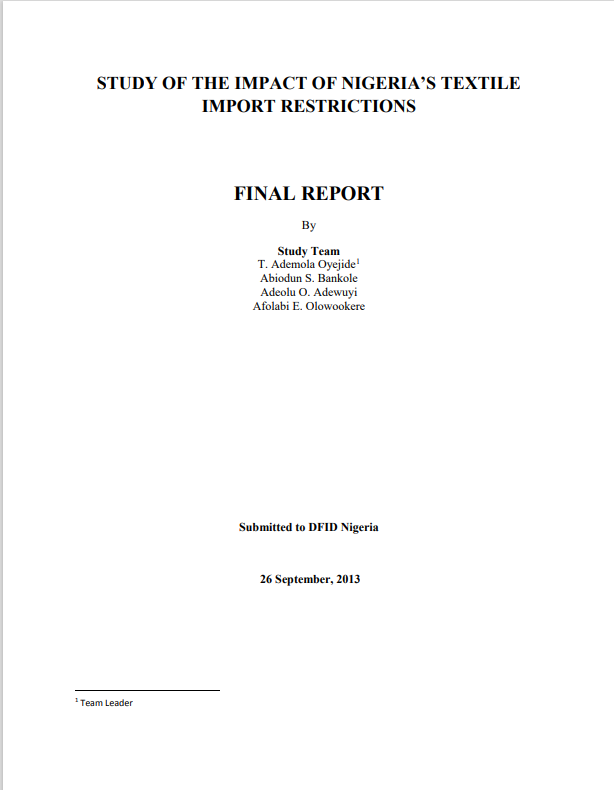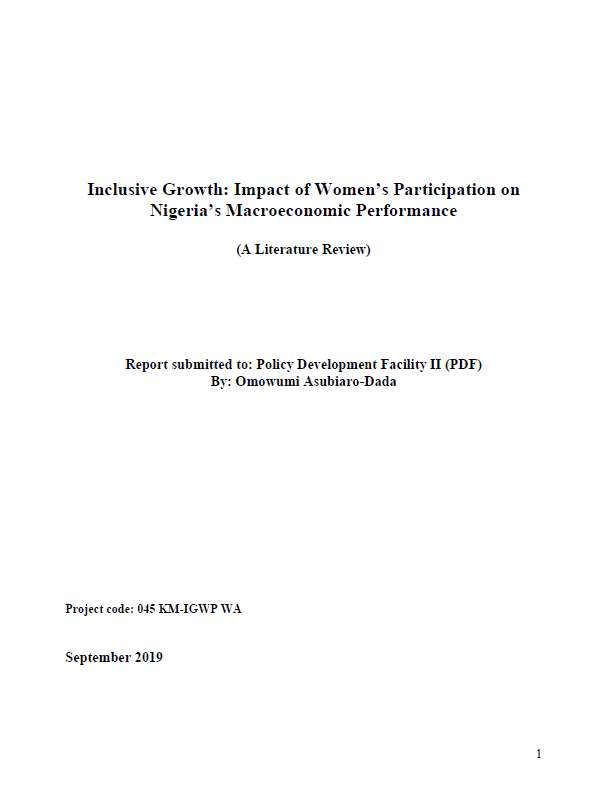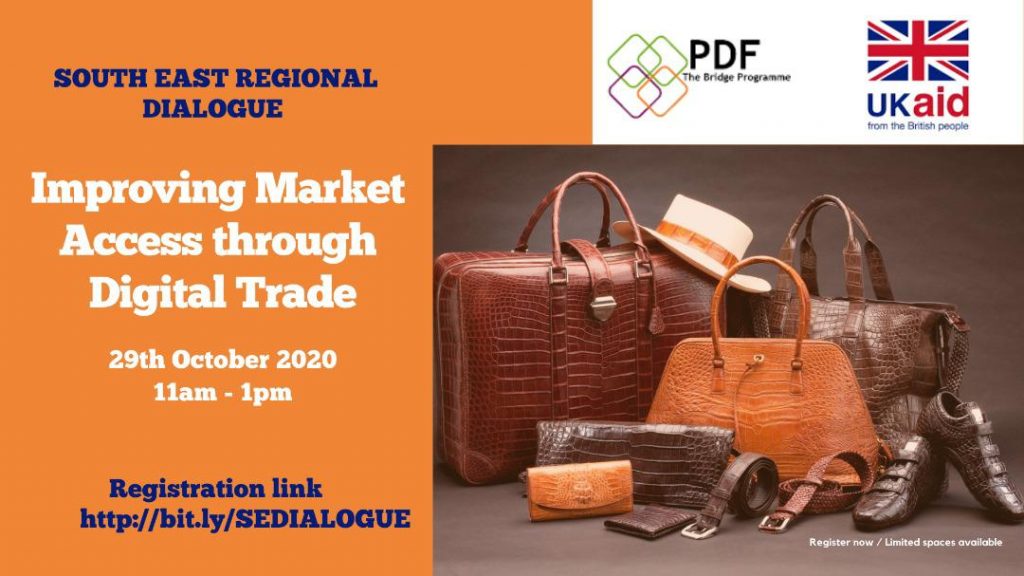This study conducted by PDF with support from FCDO (formerly DFID) shows that women who engaged in cross border trade contribute to food security by trading food products from areas of surplus to areas of deficit. The paper reveals that depending on how this trade is organized, these women have the potential to contribute significantly to household earnings and resources. This empowers women by giving them financial independence and control of their own resources.
Women and Cross Border Trade
Associated resources
This policy brief provides a national and global context for the recommendations for Nigeria emerging from a desk review of research on the links between women’s participation in economic activity and economic growth.
This is the report from a feasibility study conducted on the possibility of constructing a border post and associated infrastructure at Saki West, Oyo State. Conducted in 2012 and funded by FCDO Nigeria Policy Development Facility (FCDO-PDF).
This study focuses on the determination of the impact of Nigeria’s textiles import restriction. Specifically, the study describes the structure of the global and Nigeria’s textile industries as well as the global value chain, and the policy environment surrounding the industry in a global and national perspective. It was conducted in 2013 with support from FCDO (formerly DFID).
This literature review provides a global context for the links between women’s participation in economic activity and economic growth, and recommendations to overcome key challenges to the economic empowerment of women in Nigeria.
This dialogue explores the alternative ways to provide market access to the southeast business hubs from Aba through Onitsha. COVID19 has caused businesses to reimagine their trade value-chain working actively to diversify roles. This dialogue explores ways that new technologies can help bridge the gap between buyers, sellers, and manufacturers.

